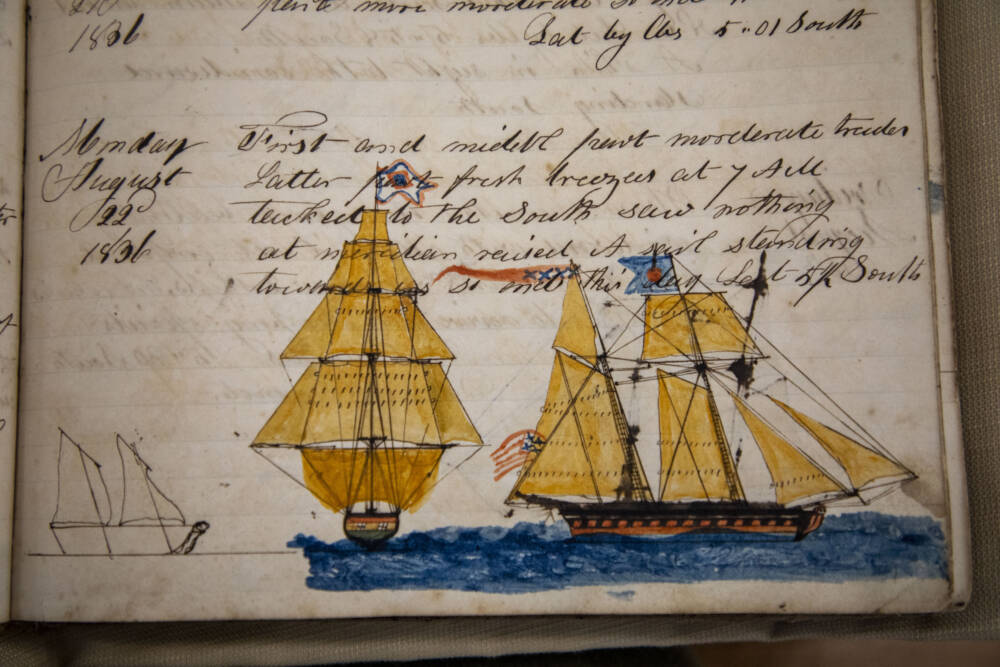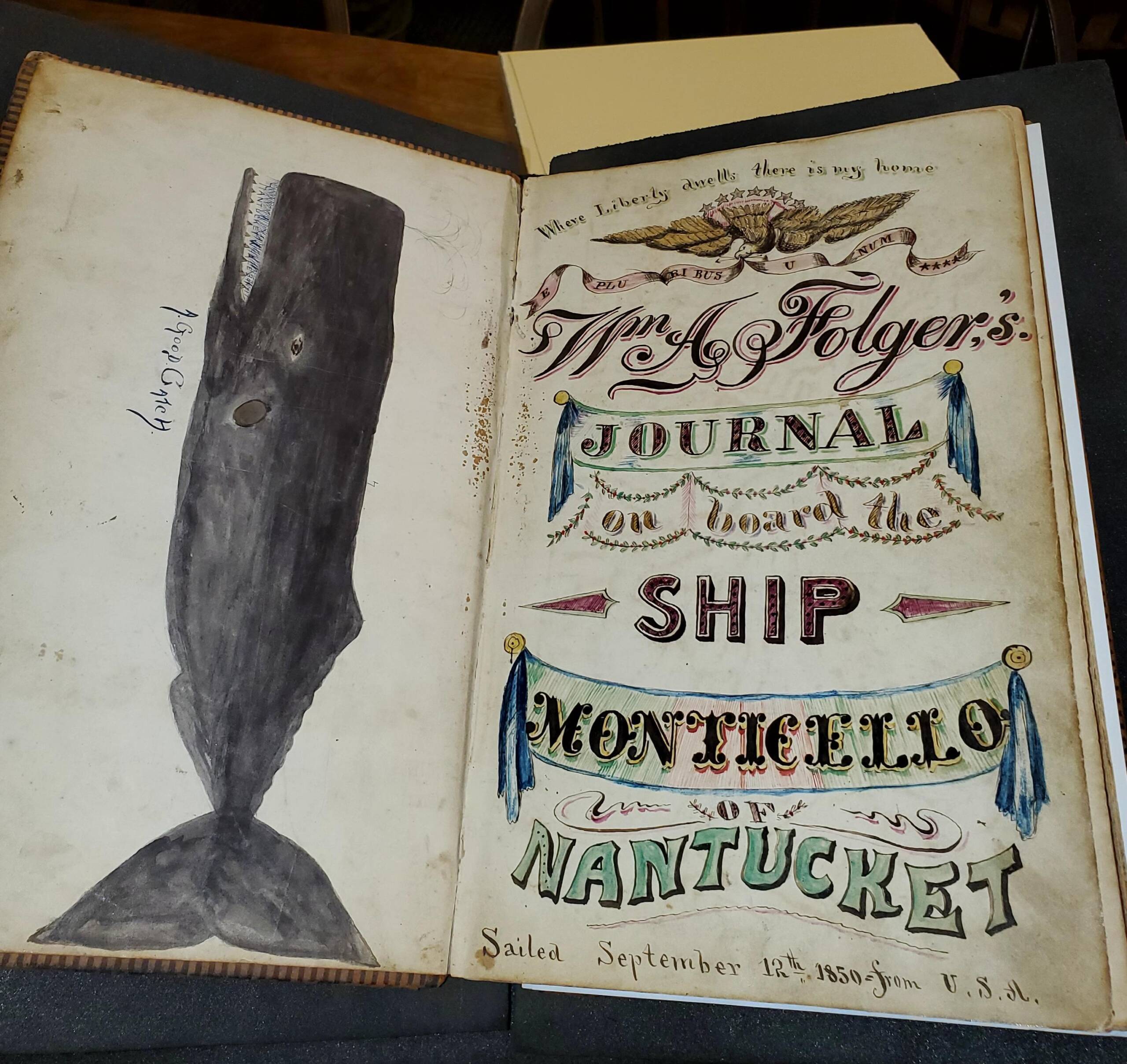Advertisement
Whaling logs from centuries ago offer new insight into climate change
Resume
19th-century whalers sailed the world's seas hunting their giant prey for oil-producing blubber. But they were also fueling the New England economy — at its peak in 1880, the industry was bringing in $10 million a year, the equivalent of about $296 million today.
These whalers also contributed to climate science. That's because the sailors were also prodigious writers, trackers and data seekers, logging every current, temperature fluctuation, wind gust and raindrop. Recently, Massachusetts historian Timothy Walker realized those data points could give scientists the information they need to figure out how the climate is changing. Walker, from the University of Massachusetts, Dartmouth approached Woods Hole Oceanographic Institution climate scientists with the idea, which spawned their ongoing research.
Walker joins Here & Now's Robin Young to talk about what that research has found so far.

This segment aired on May 10, 2023.